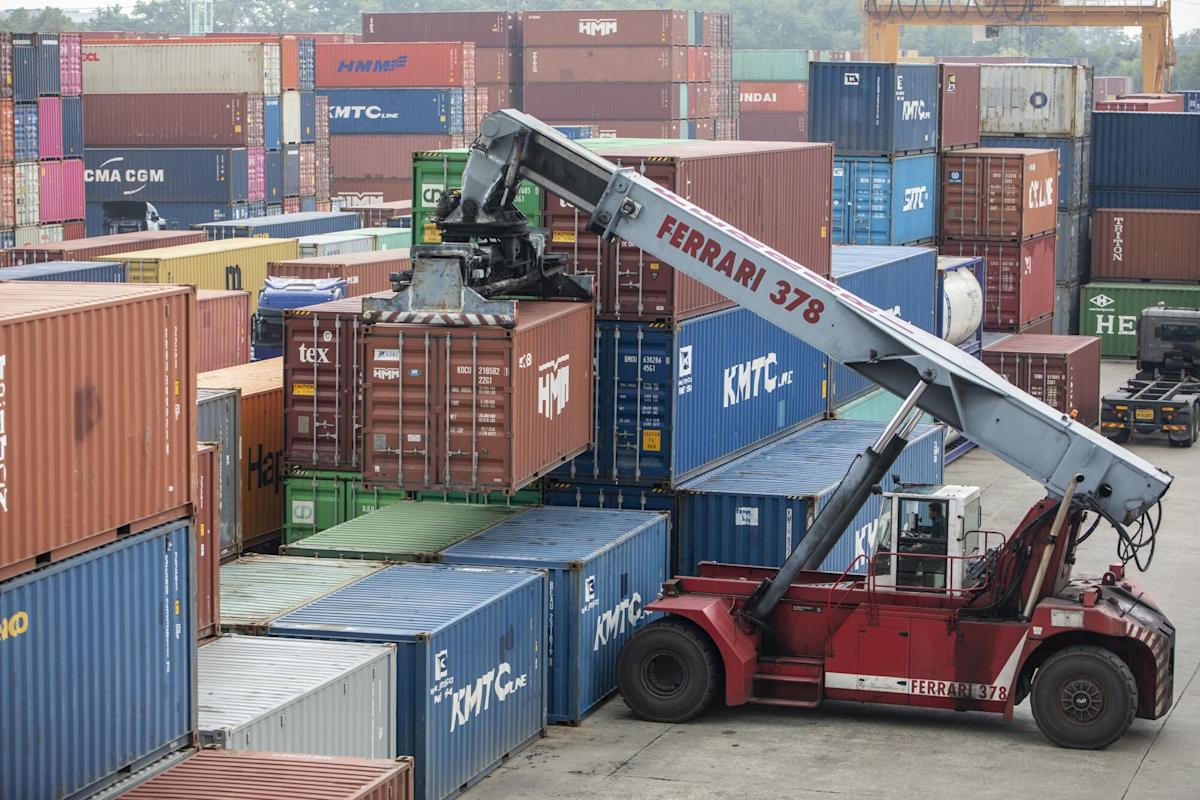Korea-US Trade Talks Remain in Deadlock After Raid Fuels Tension
“
(Bloomberg) — South Korea’s top trade negotiator continued talks in Washington this week on a $350 billion investment pledge after an unprecedented US immigration raid stoked tensions, fueling debate in Seoul over whether the outlay is worth pursuing.
“
The push to finalize the agreement reached in July comes as both sides work to move past an the US immigration swoop at an under construction Georgia EV battery run by Hyundai Motor Co.-LG Energy Solution Ltd. After more than 300 Korean workers were detained and later released in the raid, Trade Minister Yeo Han-koo met US Trade Representative Jamieson Greer on Tuesday, following Industry Minister Kim Jung-kwan’s talks with Commerce Secretary Howard Lutnick last week.
“
“
Most Read from Bloomberg
“
“
Kim also said the outcome of the trade talks will shape Seoul’s future ties with Washington, while admitting he at times questions the value of the investment pledge.
“
The back-to-back meetings underscore Seoul’s push to break a deadlock that leaves South Korea’s cars and autoparts at a higher US tariff rate than its regional rival Japan. Auto tariffs have been a sticking point as President Donald Trump is yet to sign the executive order lowering the rate to 15%. The uncertainty has left Korean officials wary of making further commitments without clarity on how duties will be enforced.
“
South Korea and the US reached a broad deal setting a 15% tariff on South Korean goods, and their leaders reaffirmed it at a White House summit last month. Still, finalizing the agreement has proven difficult as the sides divided over how to structure and execute the investment package.
“
“
Washington has been pressing for a Japan-style arrangement, a demand Seoul considers politically and economically untenable. South Korea has pushed back against the proposal. Kim Yong-beom, director of national policy at South Korea’s presidential office, said last week that Seoul cannot accept the same terms as Japan’s $550 billion investment pledge, citing the disparity in the size of the two economies and the potential repercussions on the foreign exchange market.
“
Critics argue the investment is disproportionate to the potential benefits. Paying higher tariffs could prove cheaper, as Trump’s 25% duties would cut about 0.7% from South Korea’s GDP in lost exports, far less than the $350 billion investment, Dean Baker, a senior economist at the Center for Economic and Policy Research, said in a note last week.
“
“
“It’s difficult to understand why any country would ever enter into this sort of deal with anyone, especially Donald Trump,” Baker wrote. “They can take one-twentieth the sums being demanded by Trump and use the money to support workers and businesses hurt by the lost exports and come out way ahead.”



Leave a Comment
Your email address will not be published. Required fields are marked *